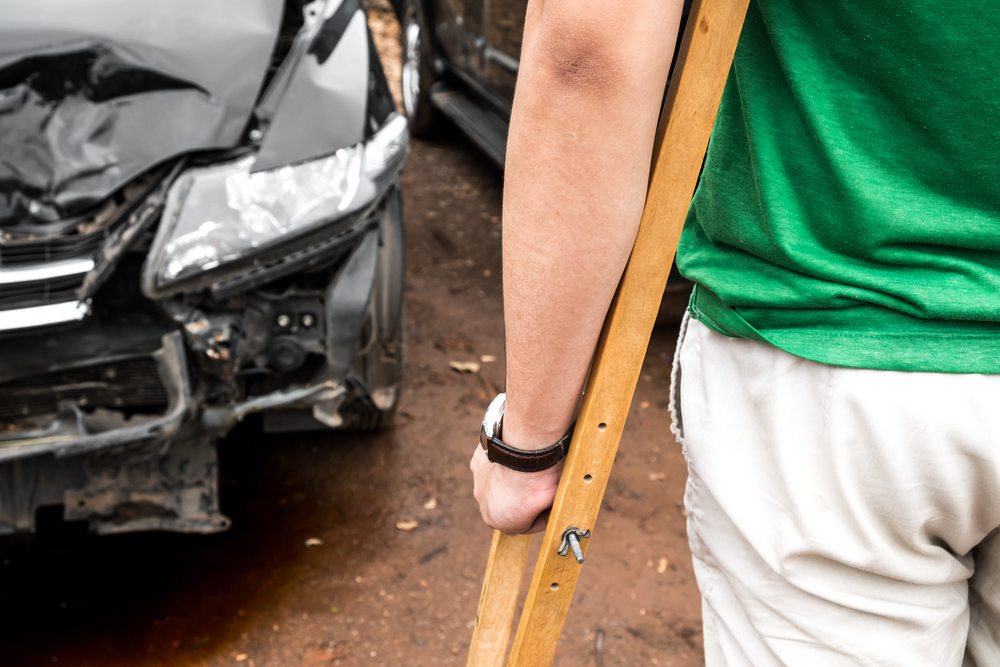Not all accidents end up being a simple fender bender where everyone exchanges information, files a report and goes on their way. In all manner of accidents, all of the repercussions may not show themselves for months (even years) after the incident occurred. So, what are you supposed to do if these injuries show up after the accident? Can you sue the driver responsible?
Truthfully, it all depends. Some factors weigh in on your ability to sue the party, including the statute of limitations. All civil lawsuits have a statute of limitations, including a Florida accident injury. This article will explain the statute of limitations, the different scenarios, and the legal remedies you may have.
Statute of Limitations
A statute of limitations is the length of time you have to file a lawsuit after an incident occurs. Criminal and civil offenses have their own separate statute of limitations. The idea behind the statute of limitations is to create fairness in legal proceedings. Victims may gain an unfair advantage if they are allotted an extended amount of time to file a lawsuit. On the other hand, the victim could get less than what they deserve if rushed to file a lawsuit due to time constraints. The statute of limitations is in place to prevent this from being the case.
Each state in the United States sets its own statutes based on the types of offenses. Depending on what the civil offense is, most range from two to four years with some exceptions. In most circumstances, the clock for the statute of limitations begins when the incident occurs (again, some caveats apply). For example, in medical malpractice civil lawsuits, the statute of limitations “clock” begins when the medical issue is discovered.
Lawyers may seek exceptions if the victim is mentally disabled, medically disabled, a minor, or declared insane.
“For more information on the Statute of Limitations, see our publication on a personal injury legal news site:- People Are Being Misled on The Time Limits on Making a Claim for an Injury Compensation Claim. ”
Florida Civil Statute of Limitations
Different civil lawsuits result in different statutes of limitation. The Florida laws dictate the length of time that you have to file a lawsuit. Below you will find the common statutes of limitations related to Florida car accidents.
No-Fault State
Florida is a “no-fault” state. This means that each person in a car accident (regardless of fault) submits their claim to their own car insurance company for compensation for medical and property damage. Most states require drivers to carry a minimum bodily injury liability coverage, but Florida does not. The only insurance requirements they have are $10,000 of coverage in both Property Damage Liability (PDL) and Personal Injury Protection (PIP).
Florida Injury Accident Limitations
In Florida, when the injuries are serious enough, it may be possible for a victim to sue the other driver in the accident. You should always seek legal counsel as soon as possible. A free consultation could help you determine if you have a case. The Florida legislature has set aside the following situations as grounds for a lawsuit after a car accident:
- Significant and permanent loss of important bodily functions
- Permanent injury within a reasonable degree of medical probability, excluding scarring and disfigurement
- Significant amounts of scarring or disfigurement
- Death
In these instances, the statute of limitations is four years from the date the accident occurred. If you do not file a personal injury lawsuit within that time and do not fit into the above specialty circumstances, the judge will likely throw out the case.
What To Do After an Accident With Injury in Florida
If you are involved in a Florida car accident, you should always call the police. Even in a minor fender bender, you need to have a police report on file for the accident. Many insurance companies will require this report to fulfill any claims you submit for medical bills or damages.
You should always seek medical attention immediately after an accident – even minor accidents. You want to have a record of any injuries that you sustained or seek a doctor’s opinion if there is an internal injury. Save all of your medical records as you or your lawyer may need them later on.
If your car is damaged, keep all records of the damages. It would be best if you refrained from getting any repairs done until after the insurance company has done their assessment. If you opted for a car rental, now would be the time to utilize it while waiting for appraisal and repairs. Should repairs be necessary, make sure you keep all records (before and after).
Finally, if you are in an accident with an injury in Florida, you need to call a Florida car accident attorney. Attorneys at Silver and Silver specialize in handling Florida injury accident cases, with years of experience to back them. To get the compensation that you deserve, call for your free consultation today.




